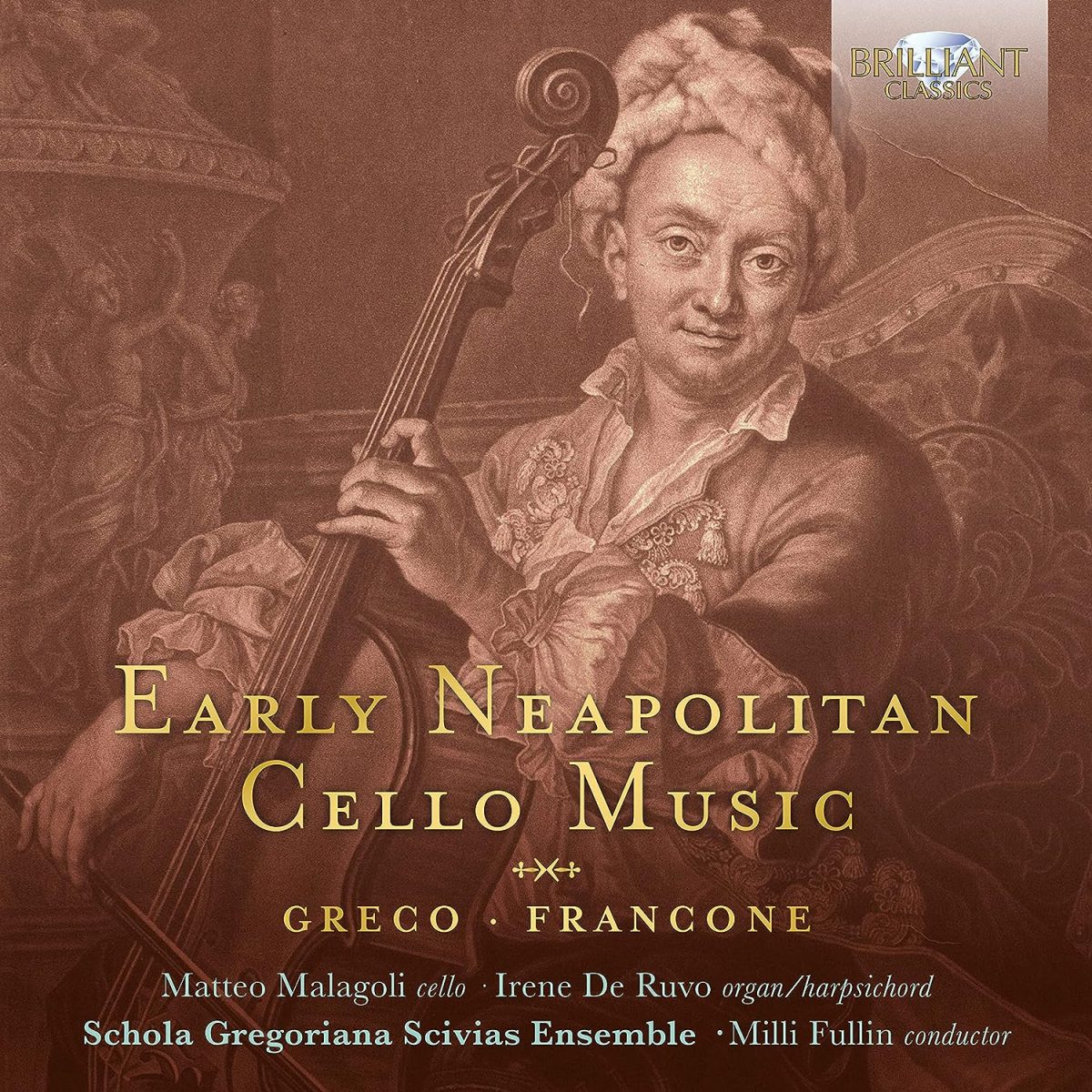Matteo Malagoli cello, Irene De Ruvo harpsichord, Schola Gregoriana Scivias Ensemble, Milli Fullin
65:12
Brilliant Classics 96345
It is hard to remember a time, not that long ago, before Naples was recognised as the important focus it is now for Baroque music, and in particular as the cradle of early cello repertoire. Anyway, the stream of neglected Neapolitan composers just keeps coming, and the present disc offers music by two of them, roughly contemporaries, Rocco Greco and Gaetano Francone. The eleven Greco pieces are Diminutions for cello and continuo based on Gregorian chant, usefully reminding us that much of this early music for cello was intended to be played as part of church services, and that the church provided much of the financial support for this musical flowering. In this recording, each of Greco’s pieces is prefaced by the plainchant on which it is based, sung by the ladies voices of the Schola. The ten short passacaglias by Gaetono Francone were probably also intended for church use. I like the idea of the chant prefaces to the Greco Diminutions, although the singing is not always as polished as it might be, and the harmonic relationship between the chant and the instrumental pieces is often unnecessarily indirect – as the chant is not tied to a specific pitch, ought it not perhaps to have reflected more closely the key of the related diminutions? At any rate, the performances of the instrumental music on cello and organ are always convincing as are the Francone passacaglias, on cello and harpsichord – might the delineation of the passacaglia bass line have benefited from a sustaining bass instrument? As this music would almost certainly never have been performed en bloc, might it also perhaps be more evocative of the original performance practice as well as providing a more varied experience for the listener to have alternated the diminutions and the passacaglias in this programme? In any case, this CD provides yet another valuable insight into the rich world of Neapolitan Baroque music.
D. James Ross
